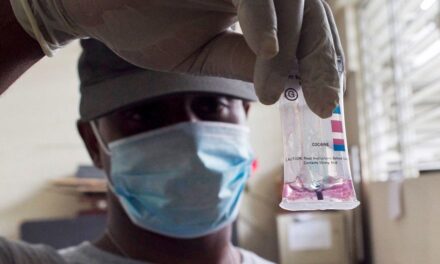Recent research indicates that sunlight-exposed plastic water bottles release harmful VOCs, necessitating safer materials and stricter regulations.
Plastic water bottles are a staple of modern convenience, yet new findings suggest they may pose hidden dangers. A recent study has highlighted the potential health risks associated with volatile organic compounds (VOCs) emitted from plastic water bottles when they are exposed to sunlight. This research emphasizes the urgent need for improved storage methods and safer materials to ensure the safety of drinking water.
The Study’s Alarming Findings
The study, conducted by the Guangdong Key Laboratory of Environmental Pollution and Health at Jinan University and published in the journal Eco-Environment & Health, delves into the health hazards linked to VOC emissions from plastic bottles subjected to ultraviolet-A (UV-A) and solar irradiation. The research team analyzed six types of plastic water bottles and discovered that all emitted a complex mixture of alkanes, alkenes, alcohols, aldehydes, and acids when exposed to sunlight. Among these VOCs were highly toxic compounds, including carcinogens like n-hexadecane, which present serious health risks.
Dr. Huase Ou, the lead researcher, commented on the study’s implications: “Our findings provide compelling evidence that plastic bottles, when exposed to sunlight, can release toxic compounds that pose health risks. Consumers need to be aware of these risks, especially in environments where bottled water is exposed to sunlight for prolonged periods.”
Health Risks and Regulatory Implications
The research sheds light on the chemical stability of polyethylene terephthalate (PET) bottles, which are widely used in the bottled water industry. Prolonged exposure to sunlight was found to increase the concentration of VOCs, suggesting a growing cumulative risk over time. This finding is particularly concerning given the widespread use of plastic bottles in outdoor and high-temperature settings.
These results underscore the necessity for stricter regulations and improved manufacturing practices. Understanding the conditions under which VOCs are released can guide the development of safer materials and production methods for water containers. Enhanced consumer awareness and more stringent industry standards are essential to mitigate exposure to these harmful compounds.
Call to Action
As the bottled water market continues to expand, the urgency for safer alternatives becomes more pronounced. This study serves as a critical reminder of the potential dangers lurking in everyday items and the importance of ongoing research to protect public health. Moving forward, industry stakeholders and regulatory bodies must collaborate to ensure that bottled water remains safe for consumption, regardless of environmental conditions.
Reference
“Characterizing the photodegradation-induced release of volatile organic compounds from bottled water containers” by Ruijuan Liu, Zhianqi Liao, Jing Zheng, Xinni Wu, Zongyi Tan, and Huase Ou, 8 February 2024, Eco-Environment & Health. DOI: 10.1016/j.eehl.2024.01.005











